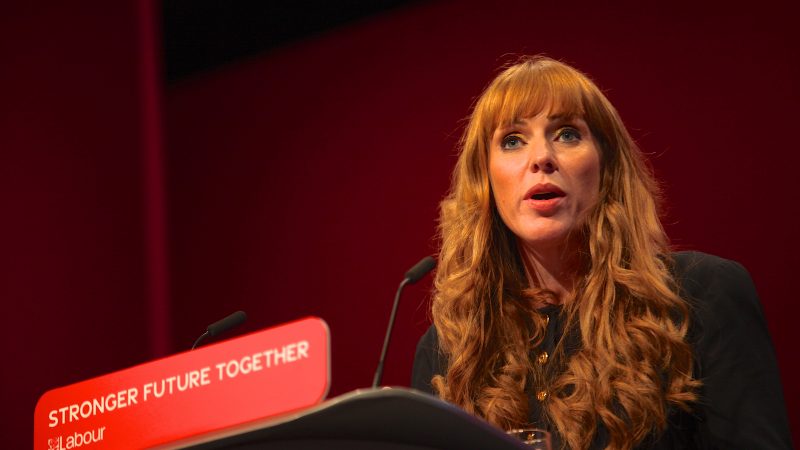
Angela Rayner has pushed back following reports that Labour has “watered down” plans to strengthen workers’ rights, arguing that the party’s proposals represent the “biggest levelling up of workers’ rights in decades”.
The Financial Times reported today that Labour’s pledge to create a single status of worker for all but the genuinely self-employed was “diluted” during the National Policy Forum (NPF) meeting last month, with the party now planning to consult on the move in government rather than introducing it immediately.
According to the paper, Labour also clarified that its plans to introduce “basic individual rights from day one for all workers” will “not prevent… probationary periods with fair and transparent rules and processes”.
In a thread on Twitter, now known as X, the deputy Labour leader wrote: “Labour’s new deal for working people will be the biggest levelling up of workers’ rights in decades – providing security, treating workers fairly and paying a decent wage.”
Rayner highlighted the party’s proposals to ban zero-hours contracts, end fire and rehire and scrap qualifying periods for basic rights, as well as its plans to make work “more family friendly” by making flexible working a day-one right where possible, strengthening protections for pregnant women and reviewing parental leave.
She said Labour would also “make sure work actually pays with a genuine living wage that covers the cost of living, ensuring fair tips, boosting collective rights and by speeding up the closing of the gender pay gap”.
The Labour frontbencher continued: “I’m proud that we developed our comprehensive new deal together with Labour’s affiliated unions. Far from watering it down, we will now set out in detail how we will implement it and tackle the Tories’ scaremongering.
“Tackling bogus self-employment is a key priority for a Labour government, and stronger protections against unfair dismissal will mean workers can no longer be sacked without reason from day one.”
Asked about the FT’s report on Sky News this morning, Labour’s Stephen Morgan said he could not comment, but added: “Obviously, we will set out more detail in our manifesto, but the Labour Party can be pro-worker and pro-business.
“We have got a really good relationship with business now, we can be trusted to run our economy and to run our country, and we have got a set of policies which are pro-worker too.”
The shadow schools minister told viewers: “I can’t comment on a policy document that has not been published yet. It will be at our party conference in October, and that is when we will see a lot more detail. But, as I said, our party is committed to improving workers’ rights as well as supporting businesses too.”
There were reports of tensions emerging at the NPF meeting last month between the party leadership and affiliated unions over several issues.
The BBC’s Iain Watson reported on the Sunday that it was understood that an attempt to equalise the minimum wage for under-18s had been “seen off”, though he said there is a “commitment to increased enforcement”.
The New Statesman’s Rachel Wearmouth heard that “no ground was given” on an amendment on backing a £15 national living wage and measures to address low weekly wages, put forward by UNISON general secretary Christina McAnea, and that equal pay for women had also been a ‘sticking point‘ at the closed-door meeting.
According to a party spokesperson, the meeting concluded by endorsing Starmer’s programme and the fiscal rules set out by the Labour leader and his Shadow Chancellor Rachel Reeves.
But Unite – Labour’s largest union funder – said it was unable to back the final document in full in a statement on the Sunday “as it clearly crossed the union’s red lines”, including around collective bargaining, workers’ access to unions and zero-hours contracts.
Some unions were publicly more positive about the meeting, with a GMB spokesperson saying the union’s participation in the NPF had “delivered significant advances for working people”, adding: “Labour now has a policy programme that would make a real difference for workers and industries they work in.”
Usdaw general secretary Paddy Lillis described the weekend as “productive”, tweeting: “Lots of important discussions and decisions to improve the lives of Usdaw members and working people.”




More from LabourList
‘Labour is being badly misled on housing’
Reeves bets on patience over populism
‘Energy efficiency changes must work for older private renters’